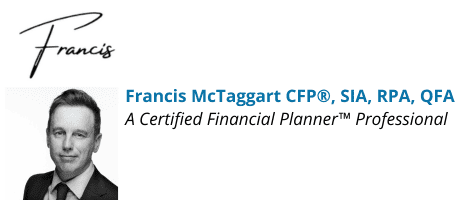Behavioural biases in personal finance: Why you are your own worst enemy when it comes to your money
When it comes to managing money, we often think the biggest challenge is knowledge: knowing what funds to invest in, what pension to choose, or how much to save.
But the real challenge? Yourself.

Behavioural biases—those mental shortcuts and emotional reactions we all have—can seriously derail even the best financial plans.
Here’s how your brain works against your bank balance, and what you can do about it.
Present Bias – “I’ll start saving next year…”
This bias leads us to prioritise short-term pleasure over long-term gain. Instant gratification over delayed gratification.
We know we should be saving more into our pension or emergency fund, but that new gadget feels far more immediate and satisfying.
The Fix: Automate your savings. Setting up direct debits for savings or pension contributions removes the need for willpower.
Future-you will be grateful.
Loss Aversion – “I don’t want to lose money”
People feel the pain of losses twice as strongly as the pleasure of equivalent gains.
This can lead to overly conservative saving choices over investing, panic selling during market dips, or hoarding cash even when inflation is eating into its value.
The Fix: Reframe how you view market volatility.
Having a long-term investment strategy, ideally guided by a financial planner, helps you stay invested when your instincts scream otherwise.
Overconfidence – “I’ve got this under control”
Many people believe they can manage their finances better than they actually can—especially when things are going well.
This overconfidence can lead to risky investments, ignoring objective (but expert!) advice, or failing to properly plan for worst-case scenarios like illness or job loss.
The Fix: Stress test your financial plan.
Ask yourself, or your planner, “What happens if…?” across different scenarios to see how robust your plan really is.

Anchoring – “But I paid €500 for it…”
Anchoring is when you fixate on a number or decision, even when it’s no longer relevant.
This shows up when people hold onto poor-performing investments just because they don’t want to “sell at a loss,” or continue expensive habits based on old income levels.
The Fix: Make decisions based on current facts and future goals, not past costs. A financial review can help reset your focus.
Emotional Attachment – “It’s my money”
This is perhaps the most human of all: we’re emotionally tied to our money.
It represents our time, effort, status, and even identity. That emotional weight clouds rational judgement, making it hard to delegate, seek advice, accept advice (even when sought) or take action.
The Fix: Recognise that money is a tool—not a scorecard.
Getting objective advice helps separate the emotional from the financial, so you can make clear-headed decisions.
Why We’re So Emotionally Tied to Our Own Money
Money is more than just numbers on a spreadsheet—it’s deeply personal. It reflects our hard work, our sacrifices, our identity, and even our sense of security.
Because of this, it’s incredibly difficult to be objective about it. That emotional connection makes self-directed financial planning hard: we’re too close to the situation.
We second-guess decisions, procrastinate on actions that feel uncomfortable, or let fear and pride override rational thinking.
It’s the same reason doctors don’t treat themselves—distance brings clarity.
A financial planner acts as that objective sounding board, helping you step back, see the bigger picture, and make smarter decisions rooted in logic, not emotion.

Final Thought
There we are, behavioural biases in personal finance.
You don’t need a finance degree to build a strong financial future.
But you do need self-awareness. Knowing how your behaviour influences your decisions is the first step to overcoming it.
Ready to take the emotion out of your financial decisions?
At Fortitude Financial Planning, we offer impartial, expert advice that brings structure, clarity, and calm to your finances.
Whether you’re just getting started or planning for retirement, we help you make smarter choices—without the stress.
📅 Click here to book your call now.
Visit our Insights – A hub of information covering saving, investing, financial planning, protection, and pension advice.


Our blog posts are intended for information purposes only and should not be interpreted as financial advice.
You should always engage the services of a fully qualified financial planner before entering any financial contract.
To discuss engaging the services of Fortitude Financial Planning please email us at info@fortitudefp.ie.
Fortitude Financial Planning Ltd will not be held responsible for any actions taken as a result of reading these blog posts.


 Production
Production